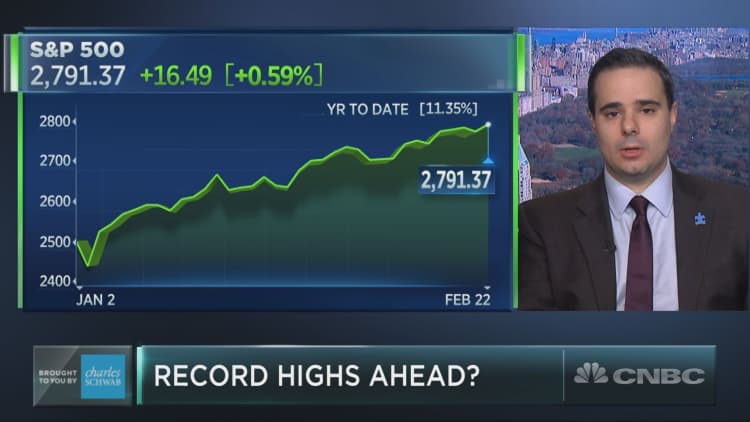
Federated Investors' Steve Chiavarone called for a rally in small caps in January.
Back on Jan. 11 when he made the call, the IWM Russell 2000 ETF had already bounced 14 percent off its lows. Since then, it has added another 10 percent.
Now he's calling for even more gains in what were some of the most beaten-up corners of the market last year.
"We really prefer the parts of the market that the market hated back in December, because they were pricing them for recession," Chiavarone said on CNBC's "Trading Nation" on Friday, naming energy, industrials and materials as some of the worst hit. "These were all down 25 to 30 percent on the idea that earnings and the economy as a whole were going to go into recession."
Areas of the market including energy, industrials and materials stocks, alongside small caps, plummeted in December. Since their Boxing Day lows, those sectors have bounced double digits, the XLI industrial ETF by as much as 27 percent.
Chiavarone expects those good times to continue, leading the to break its October record and march onward to 3,100 by the end of the year. That's another 11 percent on top of the 11 percent in gains already seen in 2019.
"The rally that we've had so far this year is just undoing the silliness that happened last December," said Chiavarone. "The market [is] just getting back to where it should have been to begin with. It should have moved down a little bit on a slight deceleration of growth."
Impending recession fears that weighed on the market in the fourth quarter aren't even on Chiavarone's radar for now.
"For us to get bearish, we need to see a deterioration in the fundamentals that would predict a recession — so claims would need to pick up, inflation would surge, housing starts would have to plummet, the yield curve inverted," he said. "Right now those indicators suggest that the earliest we should even consider recession is late 2020, early 2021."
Goldman Sachs has called for a sharp slowdown and weak earnings growth in the United States and Europe but no recession, while Morgan Stanley sees earnings contraction this year for the first time since 2015.





